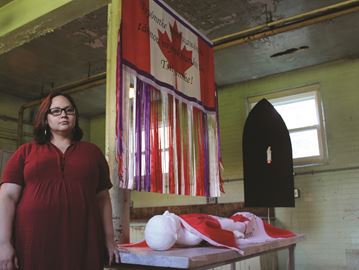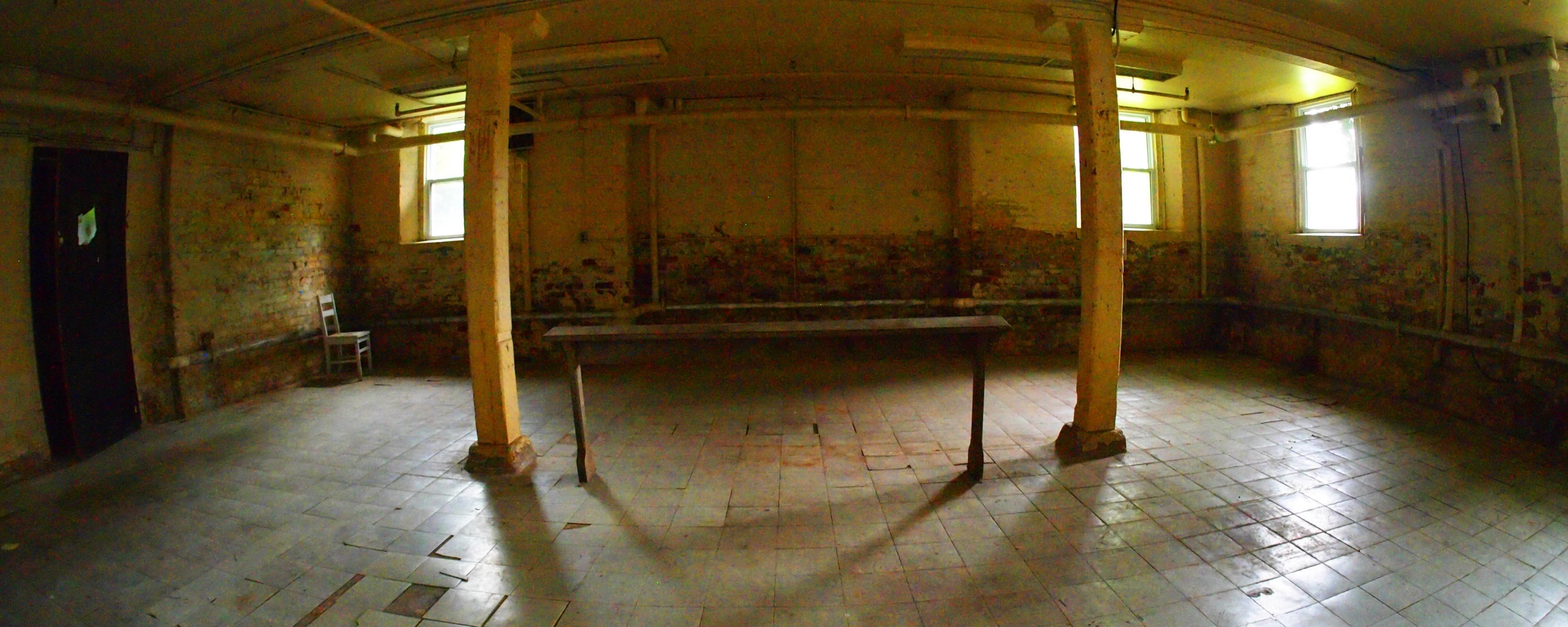The Mush Hole Project at the Mohawk Institute Indian Residential School was previewed by several media outlets, including our own Waterloo Stories. Here they are with links to the full stories:
See what the Mush Hole left behind
BrantNews, September 12, 2016 | by Victoria Gray
It's no secret that Brantford has a dark history when it comes to indigenous people.
But not everyone is aware of details about what happened at the Mohawk Institute Residential School.

“People are just now beginning to understand the scope and impact these schools had on the country,” she said. “It does a lot when it comes to understanding and reconciliation.”
The Woodland Cultural Centre, in partnership with the University of Waterloo, are hosting the Mush Hole Project at Woodland on from Sept. 16 to Sept. 18. [...] Read the full story on Brant News.
Artists respond to the legacy of residential school
Waterloo Stories, September 15, 2016 | by Claire Prime
A former residential school for First Nations children in Brantford, Ont. — a site where children were physically, sexually and emotionally abused for more than 140 years — has become a space where artists will help visitors connect to the stories of pain, trauma, survival and empowerment.

“It’s not only way up in Kashechewan, it’s right here,” says Professor Andrew Houston of the University of Waterloo’s Department of Drama and Speech Communication. “You’re walking through it, you’re smelling it, you’re feeling it, you’re engaged with it.”
From 1828 to 1970, indigenous boys and girls from across the country were sent to the Mohawk Institute Indian Residential School, a place the students nicknamed Mush Hole after their breakfast — porridge — which was often rancid and so thick a spoon would stand up in it.
The project, led by Houston and Sorouja Moll, a Speech Communication instructor with the university, in collaboration with the University of Waterloo, Waterloo Aboriginal Education Centre, several art galleries and many community groups and individuals, was produced in response to the Truth and Reconciliation Commission’s 94 Calls to Action. [...] Read the full story in Waterloo Stories.